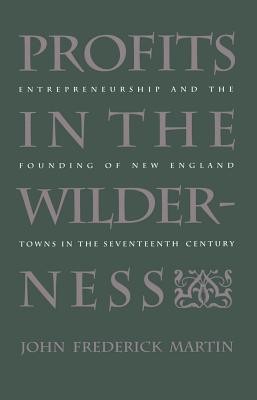
- We will send in 10–14 business days.
- Author: John Frederick Martin
- Publisher: Omohundro Institute and University of North Carolina Press
- ISBN-10: 0807843466
- ISBN-13: 9780807843468
- Format: 15.3 x 23.6 x 2.8 cm, minkšti viršeliai
- Language: English
- SAVE -10% with code: EXTRA
Reviews
Description
In examining the founding of New England towns during the seventeenth century, John Frederick Martin investigates an old subject with fresh insight. Whereas most historians emphasize communalism and absence of commerce in the seventeenth century, Martin demonstrates that colonists sought profits in town-founding, that town founders used business corporations to organize themselves into landholding bodies, and that multiple and absentee landholding was common.
In reviewing some sixty towns and the activities of one hundred town founders, Martin finds that many town residents were excluded from owning common lands and from voting. It was not until the end of the seventeenth century, when proprietors separated from towns, that town institutions emerged as fully public entities for the first time.
Martin's study will challenge historians to rethink not only social history but also the cultural history of early New England. Instead of taking sides in the long-standing debate between Puritan scholars and business historians, Martin identifies strains within Puritanism and the rest of the colonists' culture that both discouraged and encouraged land commerce, both supported and undermined communalism, both hindered and hastened development of the wilderness. Rather than portray colonists one-dimensionally, Martin analyzes how several different and competing ethics coexisted within a single, complex, and vibrant New England culture.
EXTRA 10 % discount with code: EXTRA
The promotion ends in 22d.05:10:29
The discount code is valid when purchasing from 10 €. Discounts do not stack.
- Author: John Frederick Martin
- Publisher: Omohundro Institute and University of North Carolina Press
- ISBN-10: 0807843466
- ISBN-13: 9780807843468
- Format: 15.3 x 23.6 x 2.8 cm, minkšti viršeliai
- Language: English English
In examining the founding of New England towns during the seventeenth century, John Frederick Martin investigates an old subject with fresh insight. Whereas most historians emphasize communalism and absence of commerce in the seventeenth century, Martin demonstrates that colonists sought profits in town-founding, that town founders used business corporations to organize themselves into landholding bodies, and that multiple and absentee landholding was common.
In reviewing some sixty towns and the activities of one hundred town founders, Martin finds that many town residents were excluded from owning common lands and from voting. It was not until the end of the seventeenth century, when proprietors separated from towns, that town institutions emerged as fully public entities for the first time.
Martin's study will challenge historians to rethink not only social history but also the cultural history of early New England. Instead of taking sides in the long-standing debate between Puritan scholars and business historians, Martin identifies strains within Puritanism and the rest of the colonists' culture that both discouraged and encouraged land commerce, both supported and undermined communalism, both hindered and hastened development of the wilderness. Rather than portray colonists one-dimensionally, Martin analyzes how several different and competing ethics coexisted within a single, complex, and vibrant New England culture.


Reviews